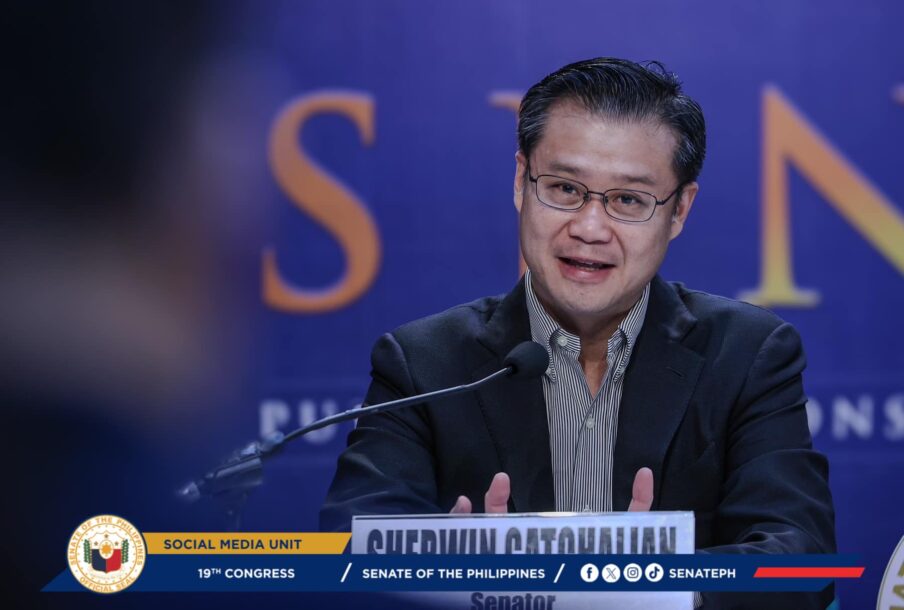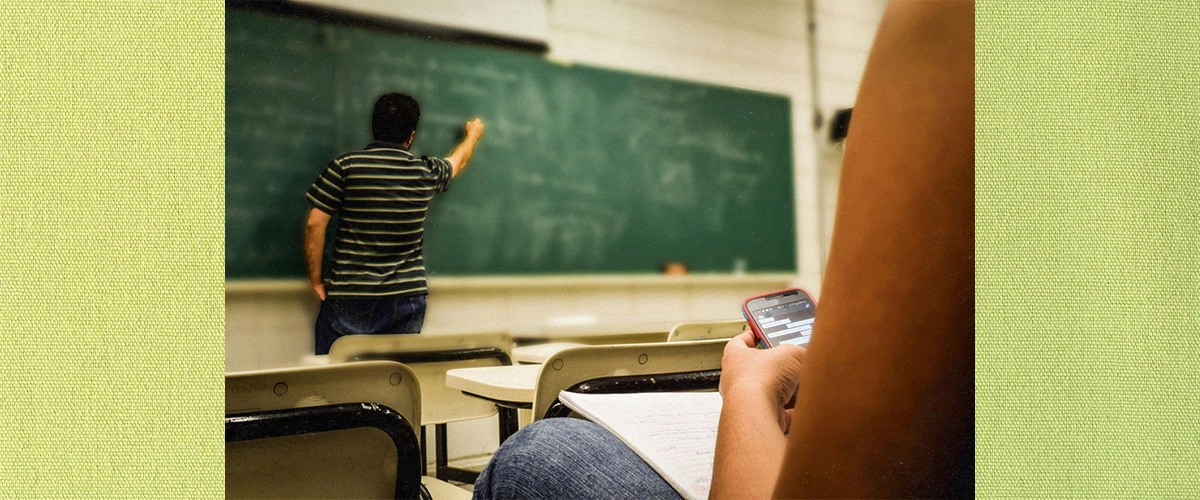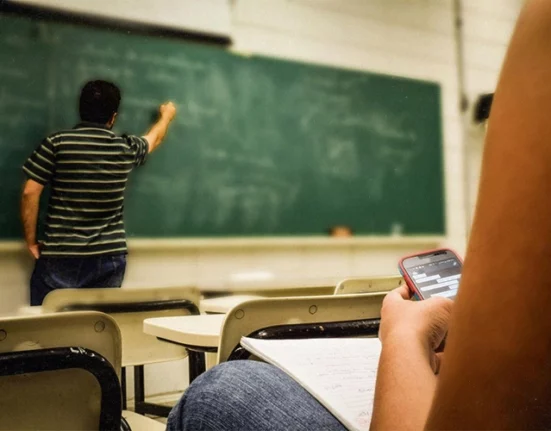A MEASURE banning students from elementary to senior high school from using their mobile phones in the classroom and during school hours may be filed in the Senate soon.
Sen. Sherwin “Win” Gatchalian, chairman of the Senate committee on basic education, is considering this proposal because he observed that the youth are getting more screen time than focusing on reading books.

“Isa rin sa mga observation—hindi lang dito sa atin ha? Pati sa ibang bansa—na yung marami sa ating mga bata talagang nalululong na sa paggamit ng cellphone, even sa loob ng classroom,” he said during the Kapihan sa Senado session on Thursday.
“Dapat nagbabasa sila pero nanonood ng YouTube, nanonood ng TikTok. So, pinag-aaralan ko ngayon na i-ban na yung paggamit ng, sa mga bata lang, sa loob ng classroom at sa loob ng school hours,” he added.
Gatchalian proposed for students to use their mobile phones only when classes are over.
“Nauubos talaga yung oras nila katitingin sa cellphone, lalo na ngayon ang social media very accessible,” he said.
This was not the first time a lawmaker proposed a ban on the use of mobile devices in schools. In 2019, San Jose del Monte City representative Rida Robes filed House Bill No. 5542, which seeks to impose a ban on the use of smartphones and other electronic gadgets among students aged 15 years old and below in all public and private schools.
However, Gen Z students have varying opinions about Gatchalian’s proposed measure.
Gen Z students react
Student Andrè Joseph Salamida from iAcademy said he was in favor of banning smartphones during class hours as it can help students focus on the lectures.
“Hindi maiiwasan yung paghawak natin sa mga phone, but with [the ban], it can test students’ patience. Students in traditional settings [don’t] require access to the Internet para matuto as long as resources are provided such as books, visual aids, [and] Powerpoint presentations,” he told republicasia.

Euxim Emmanuel Garcia from Far Eastern University echoed this and said the proposed measure will allow students to give their full attention to their studies.
“I really do think that our attention span is getting smaller and smaller, and I think it is the effect of our cellphone use kasi sobrang bilis na lang ng mga video sa TikTok ngayon,” he said.
“I kinda do agree na during class hours need mag-focus ng students muna, especially from elementary to senior high, kasi sobrang bilis ng attention span ng students parang hindi na sila maka-call attention baka masanay sila, hindi na maka-keep up sa class,” he added.
While Thraela Mae Carbaquil agreed with banning the use of cellphones during class hours, the student from Marinduque State College said the proposed bill should allow students to use their smartphones for research and to download reading materials.
“I get that he’s [Gatchalian] promoting books, but we’re already in the 21st century where the Internet and phones are already a necessity. I love books but I also value fast connections when using phones,” she said.
Ralph Mari Castro from Far Eastern University agreed that the proposed measure should have exceptions. He suggested the ban should be applied among elementary to junior high school students only, and that senior high school students must be allowed to use their mobile phones if their teacher permits.
“In that way, it is still somewhat regulated and it can be a sort of assistance to the senior high school students who have research subjects,” he said.
Importance of mobile phones
Salamida said the use of mobile phones in school was important for easy access to information, but he emphasized that students can learn in school even without the help of their electronic devices.
“You can actually learn anything in class without using them [basta] may enough resources para matuto,” he said.
For Carbaquil, her mobile phone not only helps her maintain her social connections but it also serves as a tool to improve her study habits such as reminding her about her academic calendar and giving her more resources to learn like educational applications.
“Mobile phones are already part of the academic life of students and I think ‘ban’ is not the right term to use but to ‘limit’ students from using phones during school hours,” she said.
Garcia and Castro also said that their cellphones were important to them for academic purposes because it is where some of their educational materials were stored.
“I cannot afford na hindi dalhin yung cellphone ko kasi marami akong mami-miss out, maraming akong ‘di makikitang messages na important, hindi lang sa [studies] ko pero sa personal life ko rin,” Garcia said.
November as ‘National Reading Month‘
Aside from the proposed measure to ban cellphones during school hours, Gatchalian is also pushing for the declaration of the month of November as “National Reading Month.”
This is to encourage young individuals to read and buy a book, said the senator.

“Lahat ng may kinalaman na mga ahensya, mga institusyon, at organisasyon tumulong sa paghikayat na magbasa ang mga bata,” he said.
Gatchalian also encouraged local bookstores to give discounts during the “National Reading Month.”
The lawmaker previously filed Senate Bill No. 475 or the National Reading Month Act, which aims to foster a culture of reading among basic education learners and their communities.









